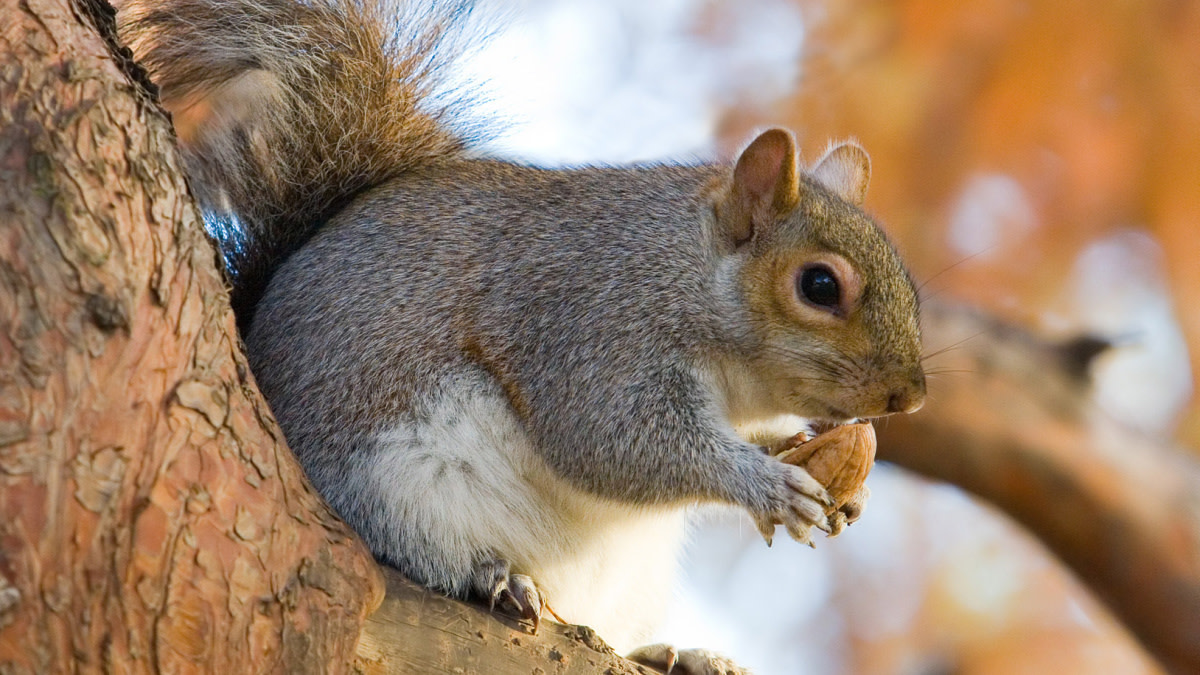
Myths, lies and old wives’ tales loom large in the outdoor pursuits. Here at MeatEater, we’re dedicated to separating facts from bullsh*t, so we created this series to examine suspect yarns. If there’s a belief, rumor, or long-held assumption you’d like us to fact check, drop us a note at factchecker@themeateater.com.
Claim
Red squirrels bite the testes off grey squirrels out of territorial aggression. Similar claims say males of the same species bite the nuts off each other to win breeding rights, or that females bite the nuts off males as a way to lower the population when resources are limited.
Origin
When Steve Rinella suggested this topic as a Fact Checker on Episode 206 of the podcast, I joked that everyone believes this because he’s said it so many times. I was proven wrong when the MeatEater inbox flooded with messages from listeners in Pennsylvania, Wisconsin, California, Kentucky, and everywhere in between. They told me that prior to Steve bringing it up, they’d heard this claim from grandads, uncles, cousins, neighbors, hunting mentors, and more.
Sigurd Olson’s 1956 book “The Singing Wilderness” is the oldest written source of this claim. In the book inspired by Lake Superior’s beauty, Olson has an entire chapter dedicated to red squirrels.
“I also know that owls like them as well as martens, and that they can throw the fear of death into the larger gray squirrels, should they invade, through the convenient medium of castration,” Olson wrote.
Facts
John Koprowski, dean of the Haub School of Environment and Natural Resources at the University of Wyoming, is one of the nation’s leading experts on squirrel ecology and conservation. He’s received multiple awards for his work with red squirrels and has written three books dedicated to America’s favorite small game animal. He told me that there’s no truth to this claim.
“I have literally watched squirrels for tens of thousands of hours in detailed behavioral studies, including a hundred or more mating bouts,” Koprowski said. “In some instances, there were massive assemblages of dozens of males chasing a single female in estrus for seven to 10 hours. Through all of that, I’ve never witnessed this happen. This common folklore is just that—folklore.”
Johnathan O’Dell, a small game biologist for the Arizona Game & Fish Department, has a passion for squirrels that extends beyond his professional life. In 2011 he was one of the first hunters to complete North America’s Squirrel Slam, killing all eight tree squirrel species in the country. O’Dell echoed Koprowski’s skepticism.
“There’s no scientific evidence or observation to support this,” O’Dell said. “I have seen many squirrels fight over females and bite each other, but not specifically targeting the testicles. In theory, a squirrel could bite off another’s testicles, but it isn’t common practice or a common occurrence, and certainly doesn’t warrant how often people believe they kill sackless male squirrels.”
Takeaway
Koprowski has a theory as to why hunters nationwide believe in squirrel castration.
“Unlike humans, the testes of male squirrels undergo a seasonal cycle where they decrease in size and ascend into the lower abdomen,” Koprowski said. “The testes recrudesce again as breeding season approaches. This means that the testes are being withdrawn from the scrotum in late summer and fall, and then descending again in winter and early spring.
“Further, the testicles of young-of-the-year males often don’t drop until their first birthday. As a result, there are almost always male squirrels without obvious testes in the woods, and that contracted scrotum can resemble a scar to the uninformed.”
Sorry Steve, but this claim simply isn’t true. There are plenty of impotent squirrels in the woods, but they aren’t the eunuchs they appear to be.
Feature image via Wiki Commons.






